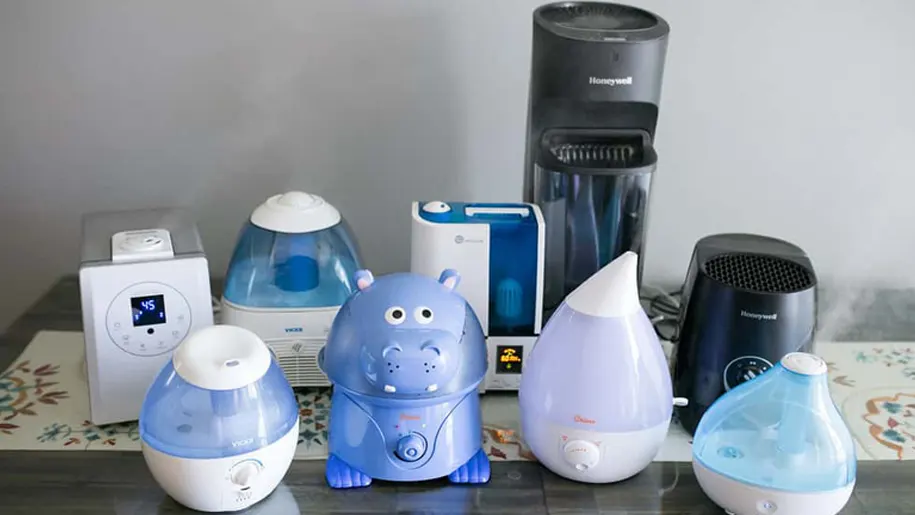If you’re like most people, you probably got rid of your humidifier as soon as the leaves started turning red and falling off the trees and the air began to cool down and frost formed on your windows. But do we really need humidifiers in winter? If you live in a dry climate, maybe not, but if you live somewhere that gets extremely cold, the answer is yes. This article will help you determine whether or not you need to use your humidifier over the winter months.
Good things about humidifiers
There are a few good things about humidifiers that may make you want to consider using one in your home this winter. First, humidifiers can help improve your skin’s moisture levels, preventing dryness and itchiness. Second, humidifiers can help reduce static electricity in your home. Third, humidifiers can help relieve congestion and coughing by adding moisture to the air. Fourth, humidifiers can help preserve wood furniture and floors by preventing them from drying out and cracking. Fifth, if you suffer from allergies or asthma and have respiratory issues, then a humidifier might be helpful as it could provide relief from symptoms like sneezing, runny nose, scratchy throat and shortness of breath. Sixth, if you’re looking for ways to save money on your heating bill this winter then it might be worth considering installing a whole-house humidifier because they release warm moist air into your home which is known to save energy costs.
When is the right time to use a humidifier
There are a few key times when using a humidifier can be beneficial. In the winter, when the air is dry and can cause static electricity and respiratory problems, adding moisture to the air can help. If you live in an area with hard water, using a humidifier can help prevent dry skin and hair. And if you have sinus problems, humidifiers can help by thinning out mucus. The problem is that we may not know how much humidity is good for us or what’s best for our specific needs. The National Institute of Health recommend keeping your indoor humidity between 30% and 50%. If you’re trying to figure out whether or not you need a humidifier, there are two main things to keep in mind: Is the air too dry? Does it feel cold outside? The answer might be yes!
Who should use humidifiers
Dry air can cause many problems during the winter, such as dry skin, static electricity, and sinus congestion. A humidifier can help alleviate these problems by adding moisture to the air. There are many different types of humidifiers available on the market, so it is important to choose one that is right for you. Some people find relief with humidifiers when they have allergies or asthma because the moist air can help open up their respiratory passages. Others find relief from symptoms like coughing, sneezing, and sore throat with this type of appliance. If you are considering using a humidifier at home, consult your doctor first to see if this would be an appropriate treatment option for your condition.
How much humidity do we need
The amount of humidity we need depends on many factors, including the temperature outside, the level of moisture in the air, and our own personal preferences. In general, though, most people feel comfortable with a relative humidity between 30 and 50 percent. Above that level, condensation can form on windows or other surfaces. Below that level, drying your skin and eyes can become an issue. To help maintain healthy levels of humidity inside your home during winter months, use a humidifier to add moisture to the air when it feels too dry indoors. If you live in a cold climate where temperatures regularly drop below freezing, consult your doctor before using a humidifier because high levels of humidity can lead to bacteria growth and mold. When used properly, however, humidifiers are one of the best ways to keep yourself from getting sick during cold weather!
Do We Need Humidifier in Winter
Whether or not you need a humidifier in winter depends on the climate you live in and how dry your home gets. If you live in an area with low humidity, your skin and sinuses may suffer during the winter months. A humidifier can help alleviate these symptoms by adding moisture to the air. However, this does not necessarily mean that you need one. The best way to find out is to consult your doctor before deciding whether or not to buy one. They will be able to tell you if there are any health issues that might arise from living in a dry environment for extended periods of time. They will also know what is needed for your particular medical condition.
Other alternatives to using an air conditioner or a humidifier
There are other alternatives to using an air conditioner or a humidifier. One is to use a dehumidifier, which can help remove moisture from the air. Another is to use fans, which can circulate the air and help evaporate any moisture that is present. Additionally, you can open windows to let in fresh air, which can help reduce the humidity levels in your home. Finally, you can increase ventilation by using exhaust fans in your kitchen and bathroom.






